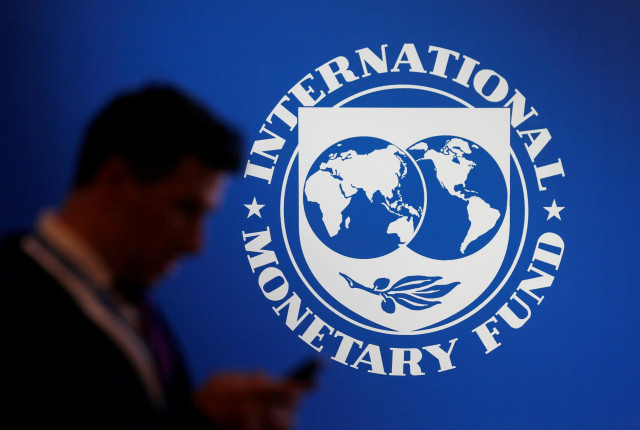IMF warns of risks to economy despite stabilisation
Says risks have emerged to debt sustainability, ability to pay back IMF loans

The International Monetary Fund said on Saturday that Pakistan’s economy has stabilised but warned that serious risks have emerged to Islamabad’s debt sustainability and its ability to pay back the IMF loans.
The caretaker government has managed to maintain economic stability on the back of decisive policy efforts, acknowledged the IMF in its staff report released on Saturday. The caretaker government deserves credit for its steadfast implementation, it added.
The IMF has underlined that the caretaker government was staying in office beyond its constitutional period of 90 days.
“Although controversial initially, as it went beyond the constitutional 90-day limit from the dissolution of parliament, the Election Commission argued that the extension was needed to redraw constituency boundaries after the outgoing government’s decision to base elections on the new 2023 Census,” reads the report.
The global lender added that Pakistan’s medium-term challenges remain acute, and the current policy efforts need to continue to address them in a sustainable manner. The report also highlighted governance and transparency risks emanating from the new Sovereign Wealth Fund and the Special Investment Facilitation Council.
“Elevated gross financing needs continue to pose high risks to debt sustainability, particularly as fiscal and reserve buffers have been depleted,” said the IMF.
It stated that timely disbursements of committed bilateral and multilateral support were critical in the period ahead. The IMF said that the gross financing needs materialisation was facing very high risks, including because of the significant sovereign exposure of domestic banks and the scope for policy flexibility is extremely limited.
The overall risk of sovereign stress was also high, reflecting a high level of vulnerability from elevated debt and gross financing needs and low reserve buffers. Medium-term risks to debt sustainability are also assessed as high, which include uneven program implementation, political risks, and access to adequate multilateral and bilateral financing in view of the high gross financing needs.
“Policy slippages, insufficient financing or elevated gross financing needs, realisation of contingent liabilities and downward risks to the baseline could all undermine the narrow path to debt sustainability.”
Read Talks with IMF to begin soon
The IMF said that with low foreign exchange reserves and scarce market financing, foreign payments will remain a persistent challenge.
The IMF said that delay in disbursement of planned financing from international financial institutions or bilateral partners could pose major risks to the government’s programme given limited buffers.
The IMF said that higher commodity prices and tighter global financial conditions, including due to the intensification of geopolitical conflicts, could put pressure on the exchange rate and external stability.
Additionally, political tensions ahead of the upcoming elections may weigh on policy decisions and reform implementation, it added.
The global lender further said that there were large public sector external rollover needs, a persistent current account deficit, a difficult external environment for Eurobond and Sukuk issuance, and limited reserve buffers in case of delays to anticipated inflows.
“Pakistan’s capacity to repay the Fund is subject to significant risks and remains critically dependent on policy implementation and timely external financing,” it added. The IMF total lending to Pakistan stands at nearly $8 billion that would further increase to $9 billion by March this year, it added.
The IMF said that a new Sovereign Wealth Fund (SWF) poses governance risks. The creation of an SWF in August 2023, comprising seven profitable SOEs worth $8 billion presents governance- and public financial management-related challenges, it added.
These SOEs are exempted from the SOE Act’s best practice structure, including safeguards related to corporate governance, monitoring, and transparency and accountability, said the IMF.
But the interim government has ensured the IMF that Pakistan will adopt measures to address the governance concerns.
Published in The Express Tribune, January 21th, 2024.
Like Business on Facebook, follow @TribuneBiz on Twitter to stay informed and join in the conversation.



















COMMENTS
Comments are moderated and generally will be posted if they are on-topic and not abusive.
For more information, please see our Comments FAQ